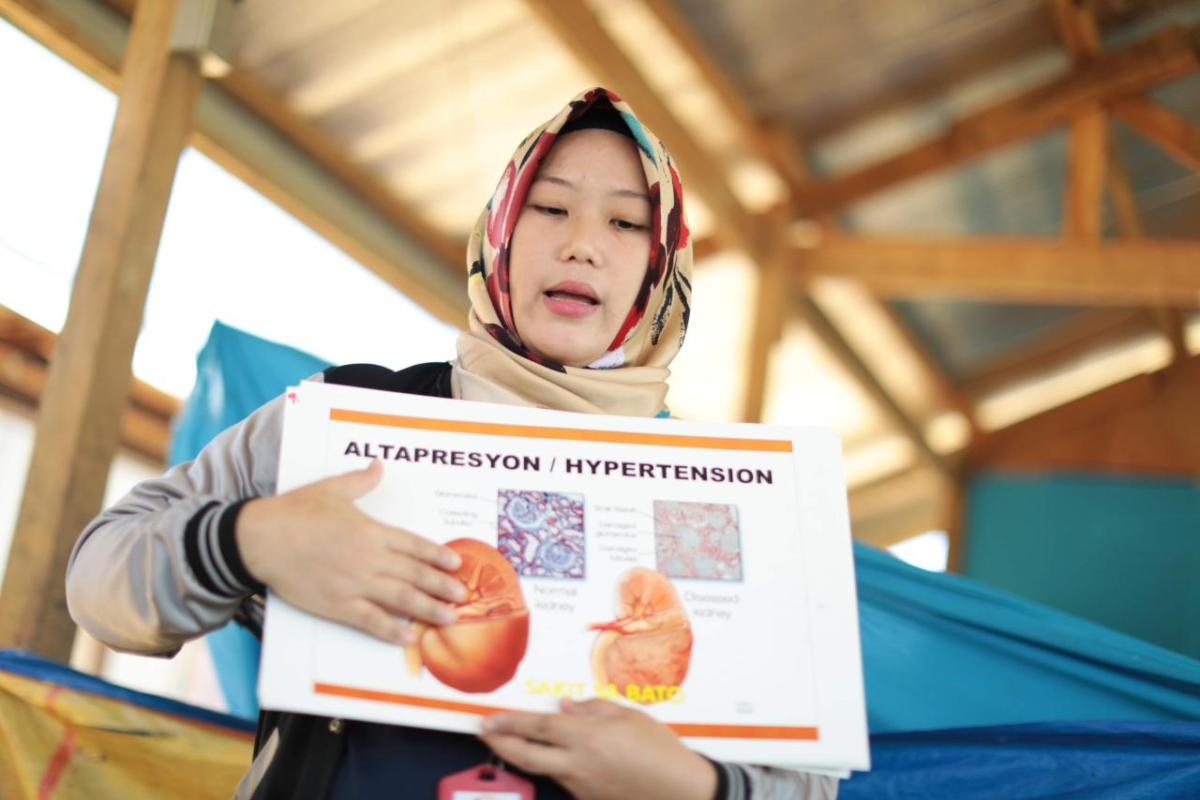In Times of Complex Crises, Ongoing Health Needs Require Frontline Interventions

In the era of the “poly-crisis” in which as many as 130 million people are displaced due to conflict and human rights violations, and climate change is worsening ongoing hunger crises, everyday health challenges such as heart disease and diabetes continue to require routine care from trained community-based health care workers. Most of the world’s frontline health workers - more than 70% - are women, and during an emergency, they experience the same level of disruption as the people they serve; they may lose their homes and livelihoods, and yet they are still the ones providing care in their communities. Their role is invaluable in addressing the specific needs of the new emergency and helping community members face and manage ongoing and underlying health challenges.
To help address non-communicable diseases (NCDs) in emergency contexts, the humanitarian organization CARE and the global healthcare company Abbott have worked together since 2019 to create an effective model of care to screen and prevent diabetes and hypertension in a humanitarian setting, and to provide these learnings to local government for replication and scale.
In the Marawi region of the Philippines, where large numbers of people were uprooted from their homes due to a protracted emergency, many people also struggle with NCDs like diabetes and hypertension. CARE and Abbott have worked with health workers like Jaslia Abbas who was trained as a midwife in Marawi until an armed conflict destroyed local health infrastructure. Jaslia was one of more than 350,000 people who were displaced by the fighting when she, her husband and their five children moved into a tent and later a temporary shelter. With support from CARE, Abbott, and the Abbott Fund, Jaslia and other healthcare workers applied their expertise to fill in gaps in the medical system by creating more than 30 “NCD Clubs” in six locations which provide peer support to community members who are experiencing or are at-risk for various NCDs. Jaslia and other community health workers took glucose readings, referred peers to the health system, and shared information about preventive health care.
By the second year, the program results were significant, showing an 80% reduction in cardiovascular events and a 9% reduction of glucose levels in the diabetic range. Additionally, 97% of the NCD club members reported weekly physical activity, and the government health system experienced a 100% increase in patients receiving diabetes services, which not only addressed chronic diseases, but also provided the data needed to justify greater investment in the health system. The program also raised the profile of women healthcare workers as a valuable resource in their community with important knowledge and influence, which in turn may help reduce gender inequities.
In 2023, the program focused on providing the local government with technical assistance to strengthen health systems, support for continuity of medicines and supplies, and learnings to ensure sustainability and scale-up of the program. The model has now been integrated into the primary health facilities, and more health workers have been hired to coordinate NCD outreach.
To learn more about CARE and Abbott’s work in Marawi, Philippines to support frontline health workers, please watch this conversation at the U.S. Chamber of Commerce Foundation’s 14th Annual International Women’s Day Forum on February 28, 2024 between Ritu Sharma, VP of US Programs and Advocacy from CARE USA, Kathryn McKenzie, Divisional Vice President, Global Citizenship and Sustainability, Abbott, and Shanique Street, Executive Director, Programs at the U.S. Chamber of Commerce Foundation: https://www.uschamberfoundation.org/corporate-social-responsibility/strengthening-global-health-investing-in-women-frontline-workers

